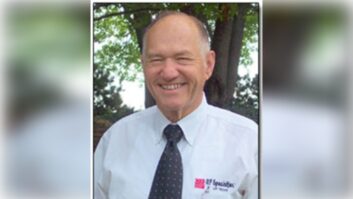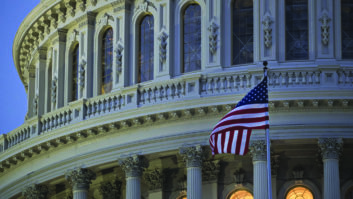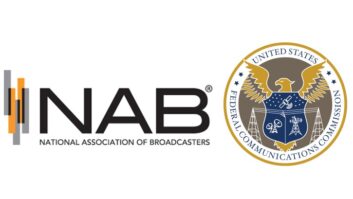Although those days of storing boxes and boxes of paper public files on site at a station are gone, the rules requiring broadcast stations to maintain public files is a longstanding one — as it has been for more than 80 years — and is still in place.
So the Federal Communications Commission recent decision to hold two broadcasters to account for failing to keep their online public file up to date is a clear one. Pampa Broadcasters Inc. and Tackett-Boazman Broadcasting are both licensees of commercial radio stations who have decided to enter into individual consent decrees with the commission to resolve political file investigations. A full-power station’s political file is part of its public inspection file.
According to FCC rules, the political public file rule states that radio stations must provide information about public office candidates and advertisers who purchase broadcast time of a political nature. Stations must upload information about such requests to their online political files and those files must be made available for public inspection.
[Read: Consent Decree (Plus Good Behavior) Results in Reduced Forfeiture]
The reason that these files must be complete and up to date is that information in them directly affects the rights of opposing political candidates to request equal on-air opportunities laid out in the Communications Act. “[T]he disclosures indicated in the political file further the First Amendment’s goal of an informed electorate that is able to evaluate the validity of messages and hold accountable the interests that disseminate political advocacy,” the commission has said in the past.
Pampa Broadcasters Inc. filed license renewal applications for its three station but it was unable to prove that it was in compliance with the public file requirements for one of the stations, which includes KDRL(AM), KGRO(AM) and KOMX(FM) in Pampa, Texas.
The situation was similar for Tackett-Boazman Broadcasting. The bureau also suspended processing of the licensee’s applications because of Tackett-Boazman’s failure to certify compliance with its public file obligations for one of the stations, which includes KQBZ(FM) and KXYL(AM) of Brownwood, Texas, as well as KWYL(FM) of Coleman, Texas.
In both cases, the Media Bureau suspended processing of the broadcast licensees’ renewal applications and commenced an investigation into their public files. And in both cases, the bureau agreed to enter into a consent decree with the broadcasters, acknowledging that the COVID-19 pandemic “caused a dramatic reduction in advertising revenues which, in turn, placed the radio broadcasting industry … under significant, ongoing financial stress.”
Under terms of the consent decree, the bureau agreed to process the broadcasters’ pending radio license renewal applications if the broadcasters agreed to adhere to a compliance plan. That plan involves appointing a compliance officer to see that all terms of the decree as enforced including distributing a compliance manual to all employees, creating a compliance training program, submitting a compliance report and promising to report any instance of noncompliance.







